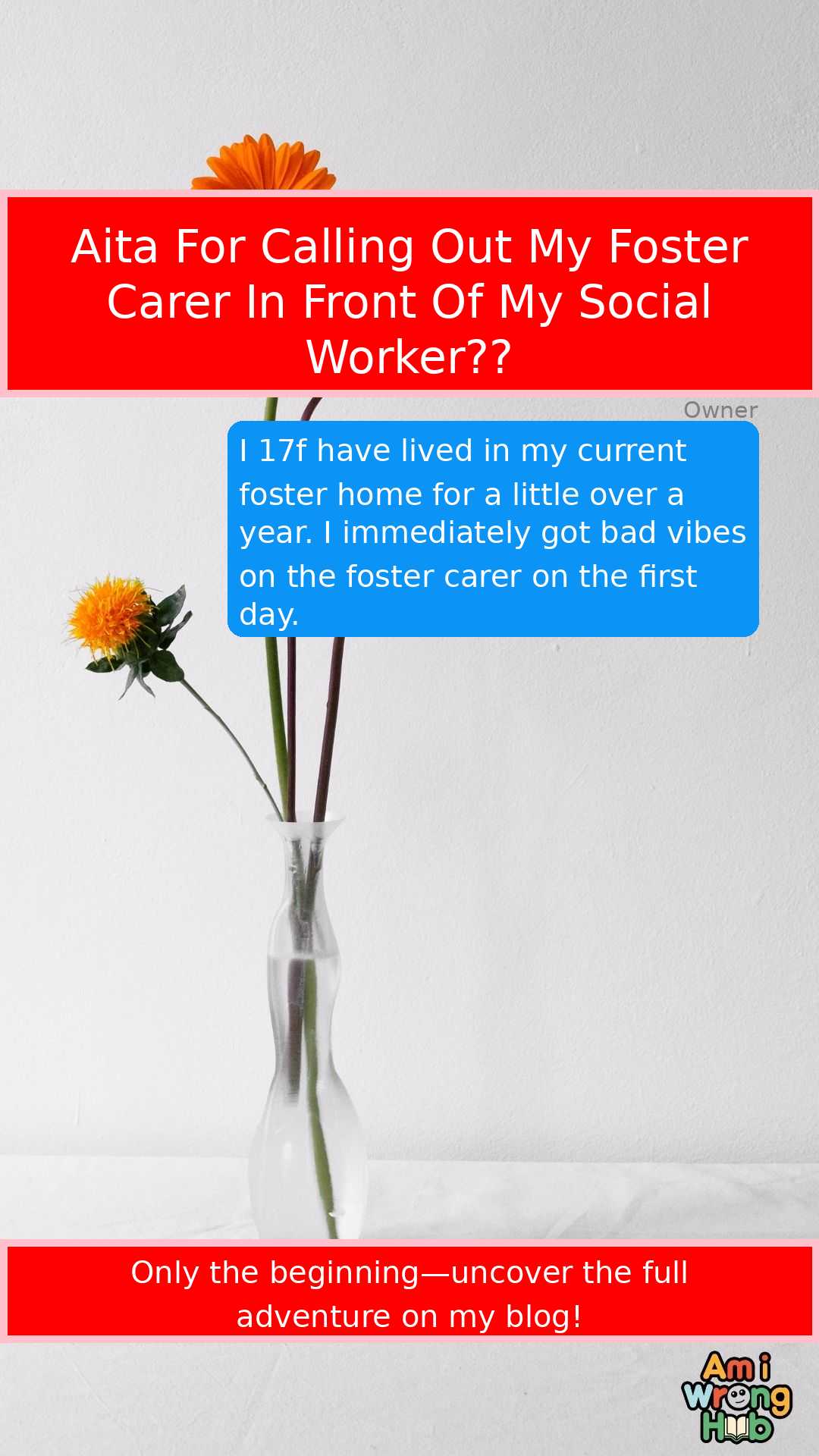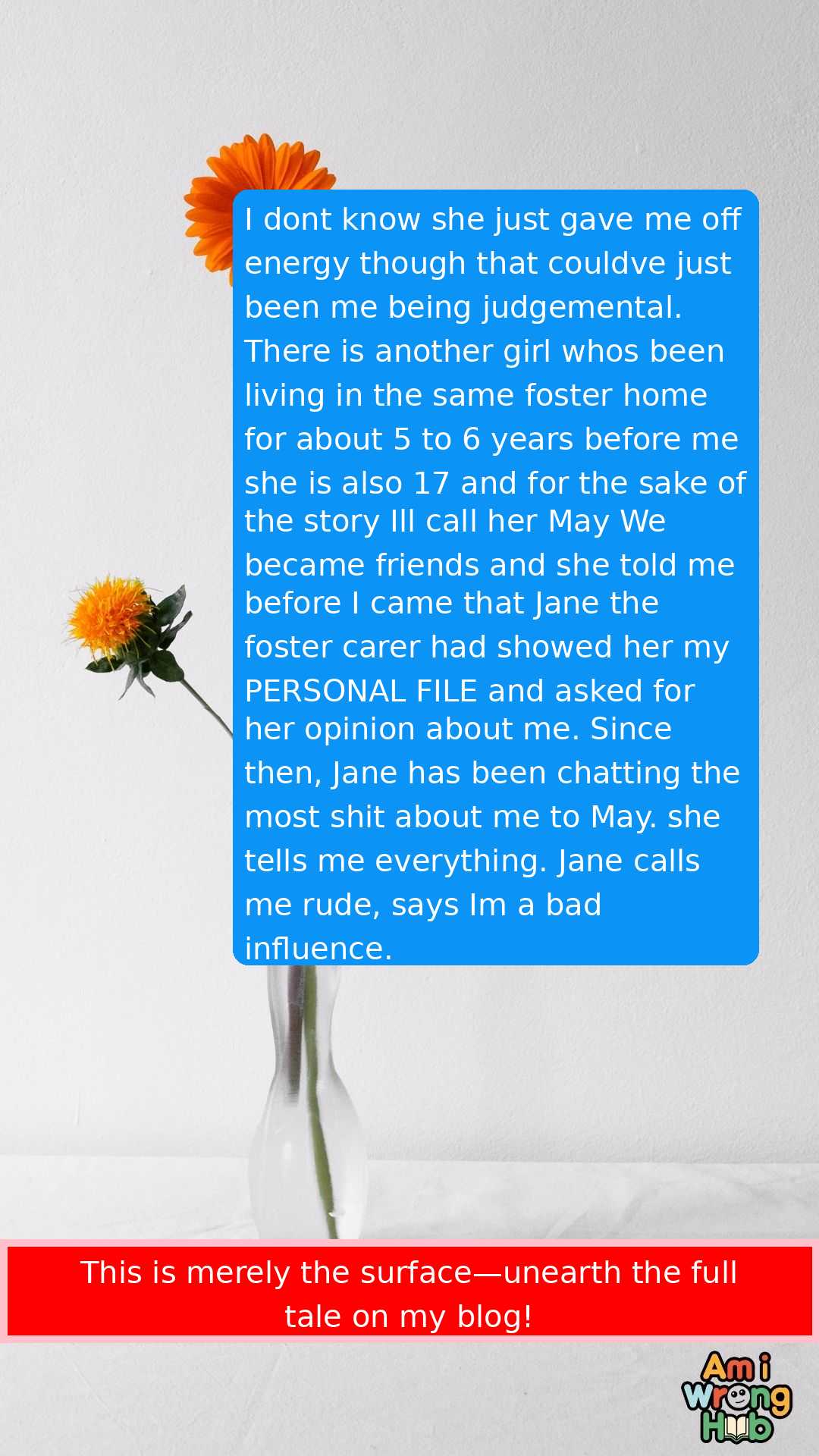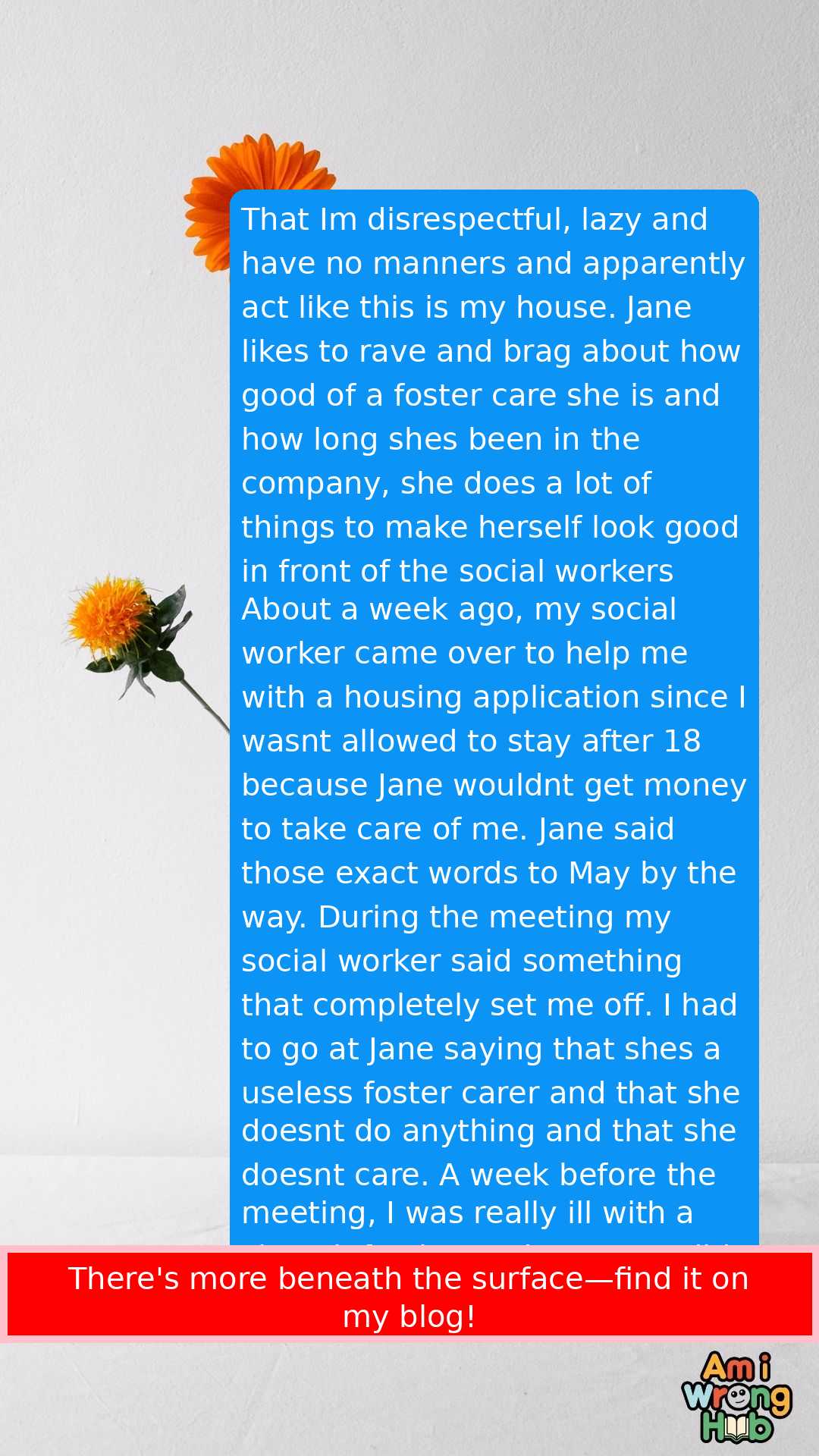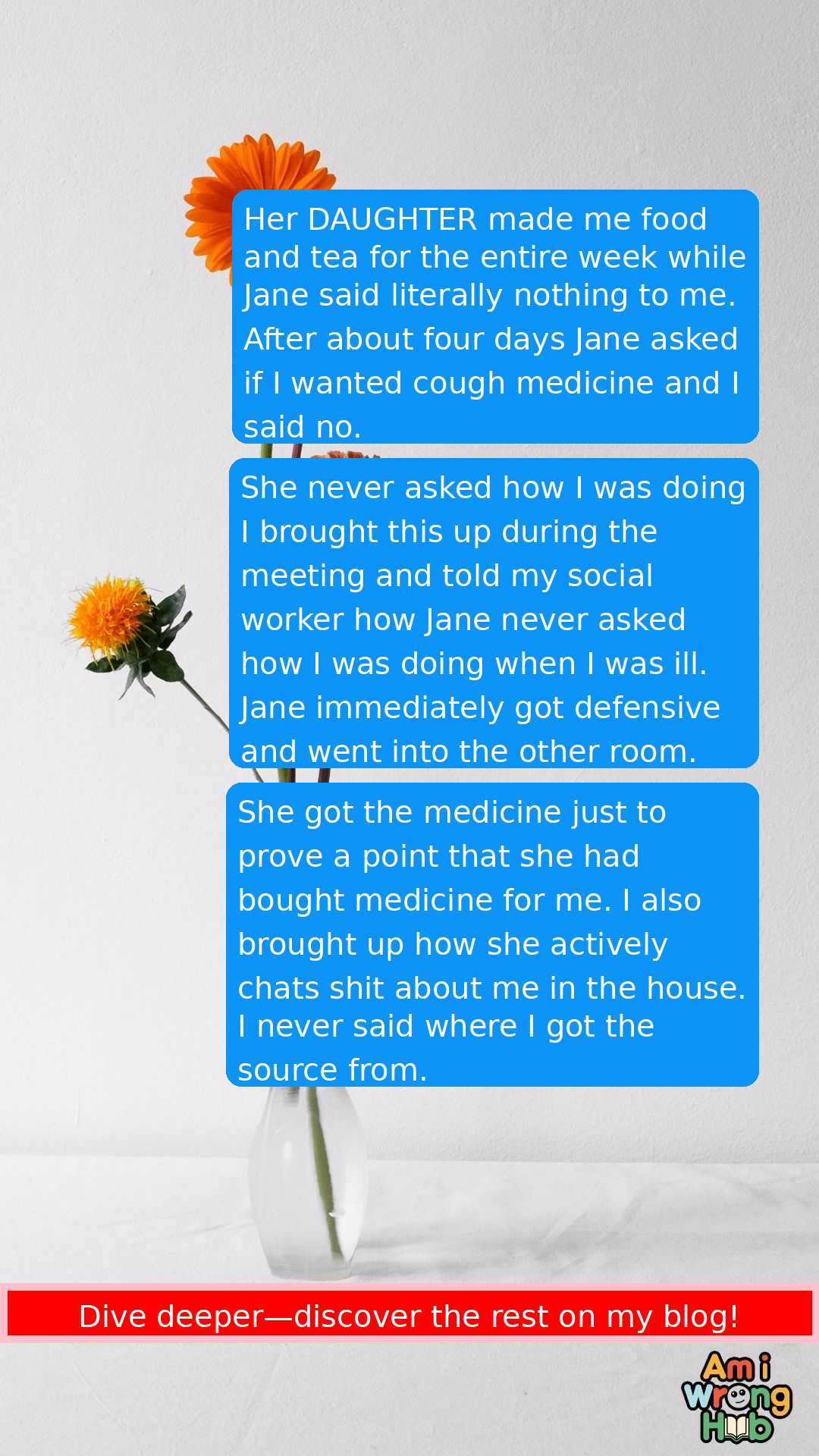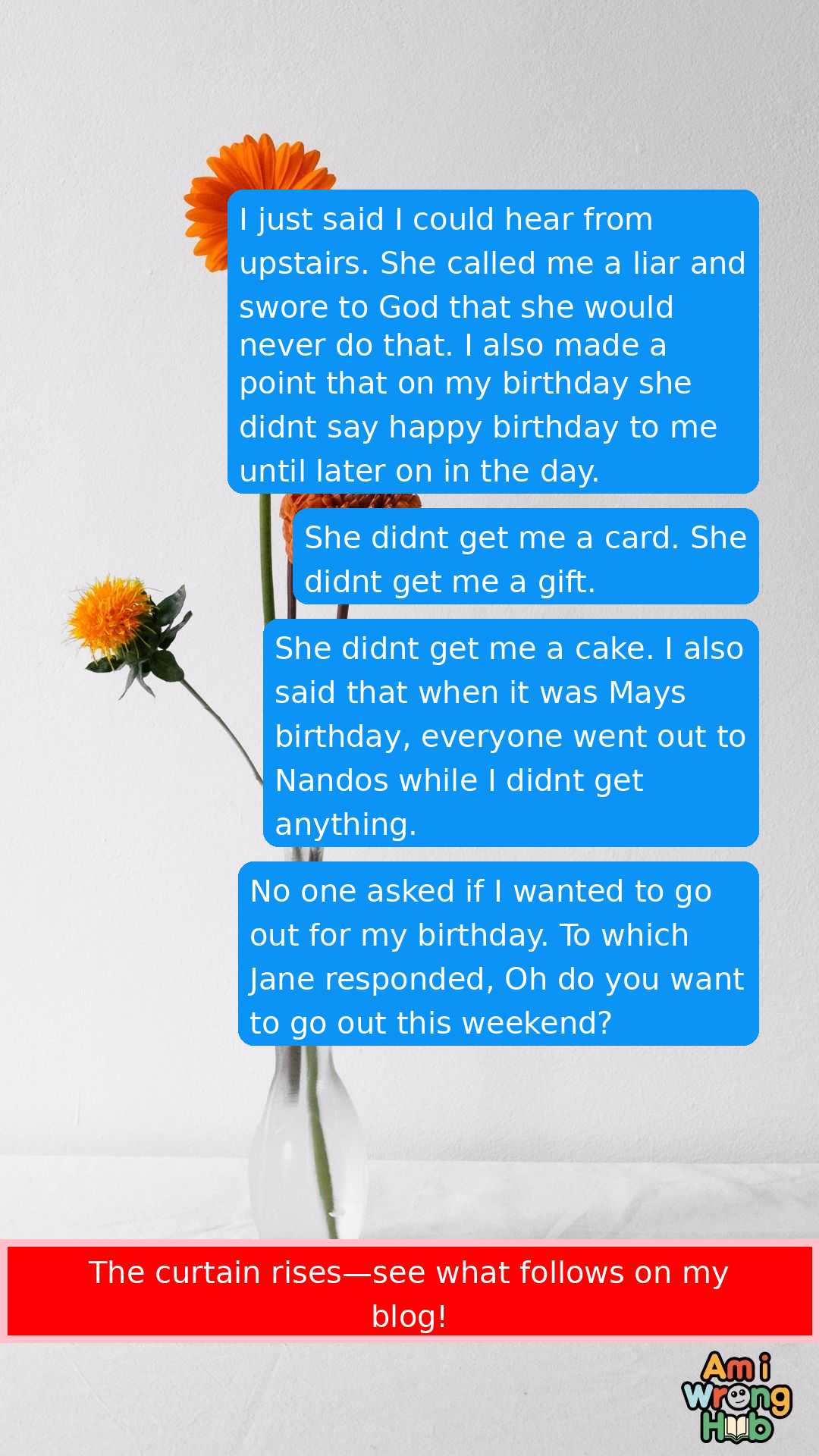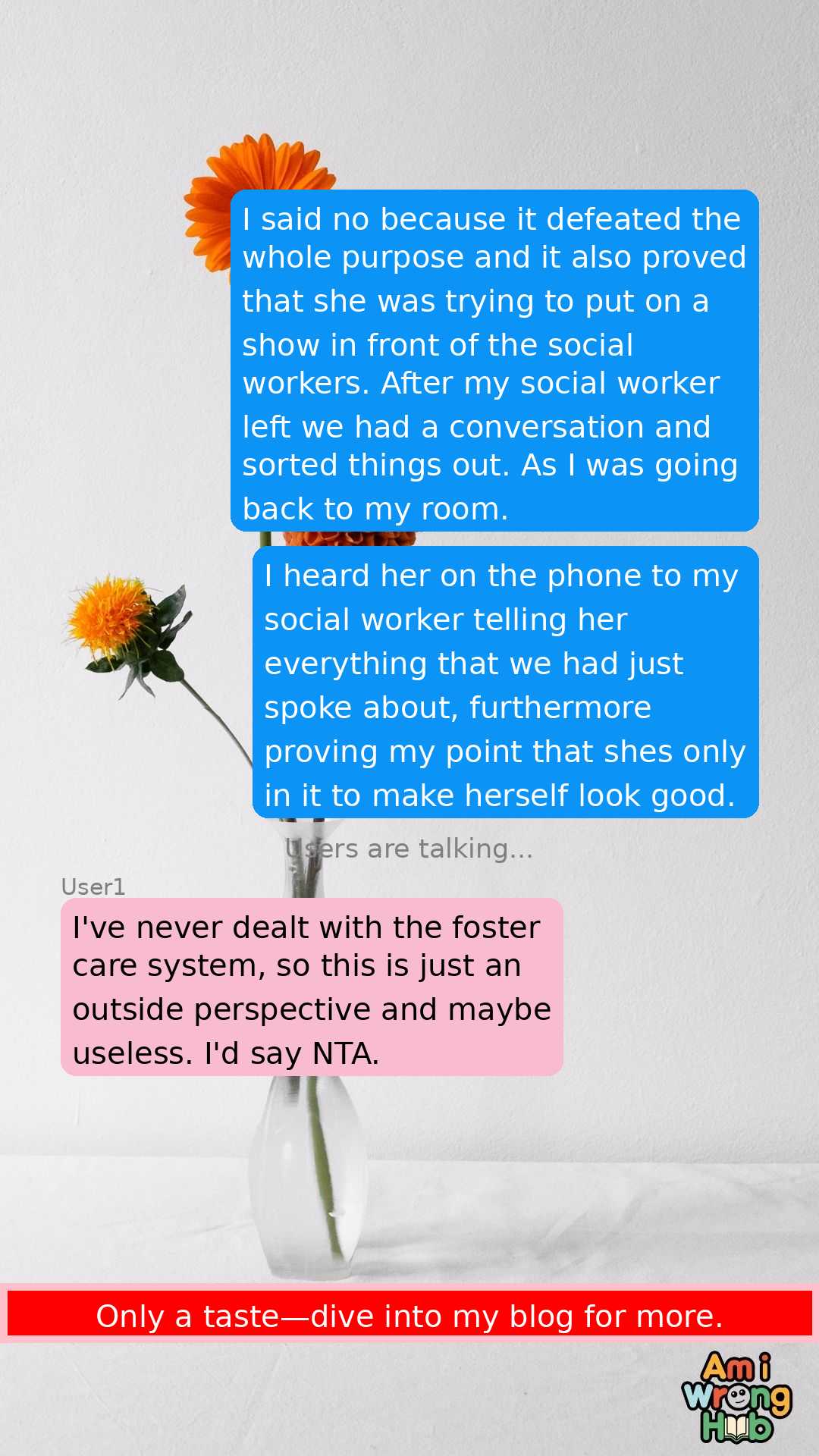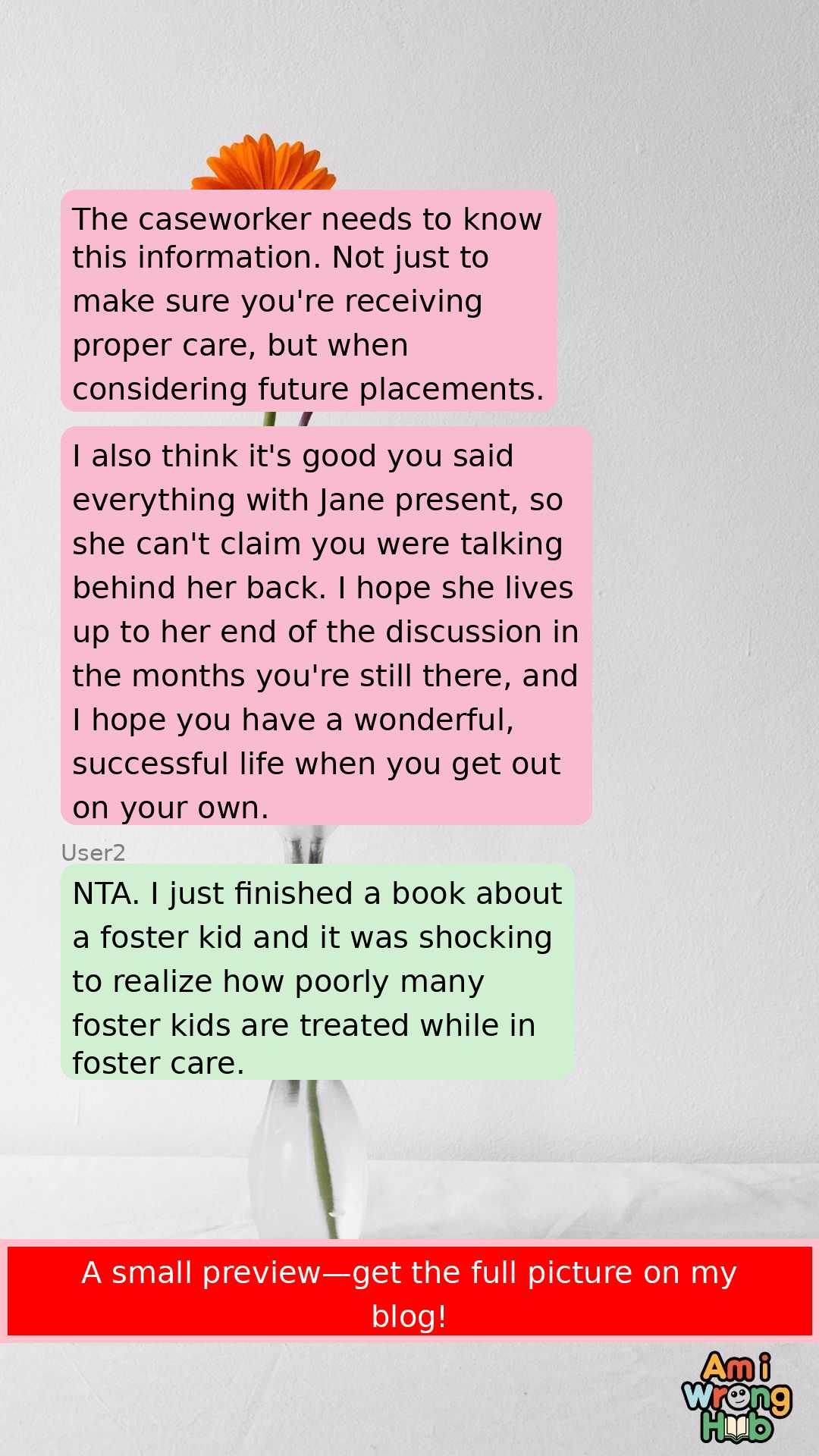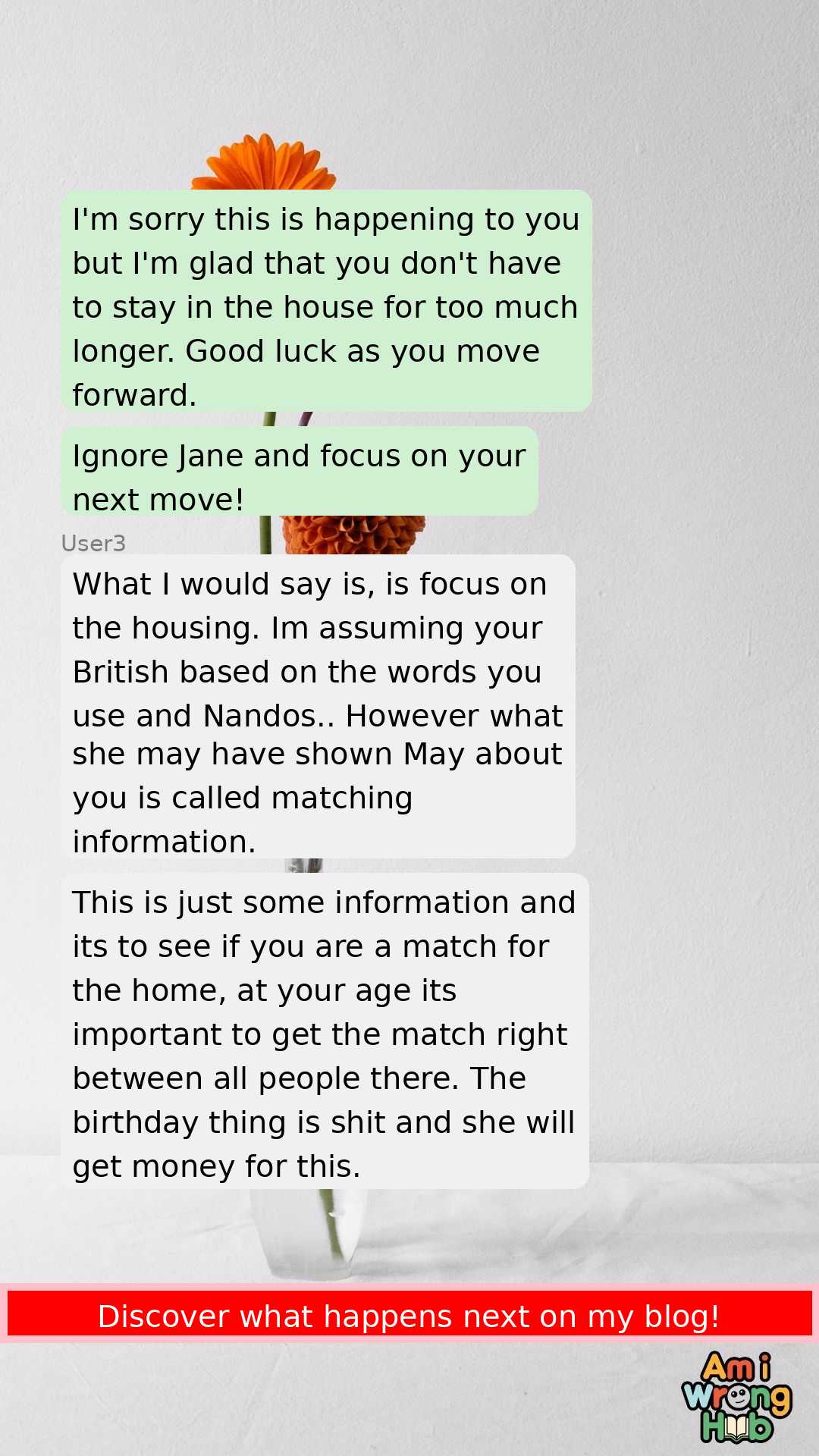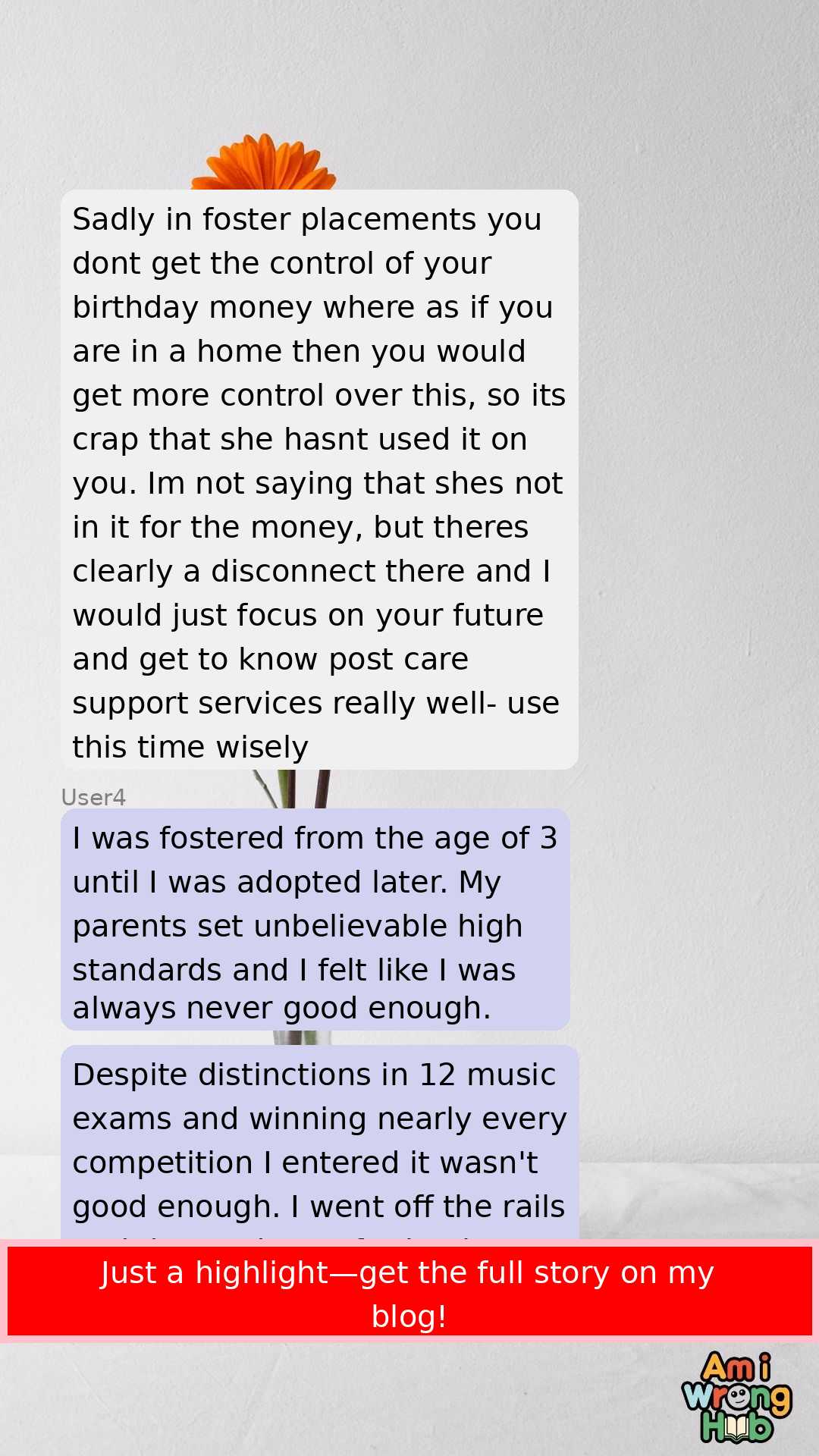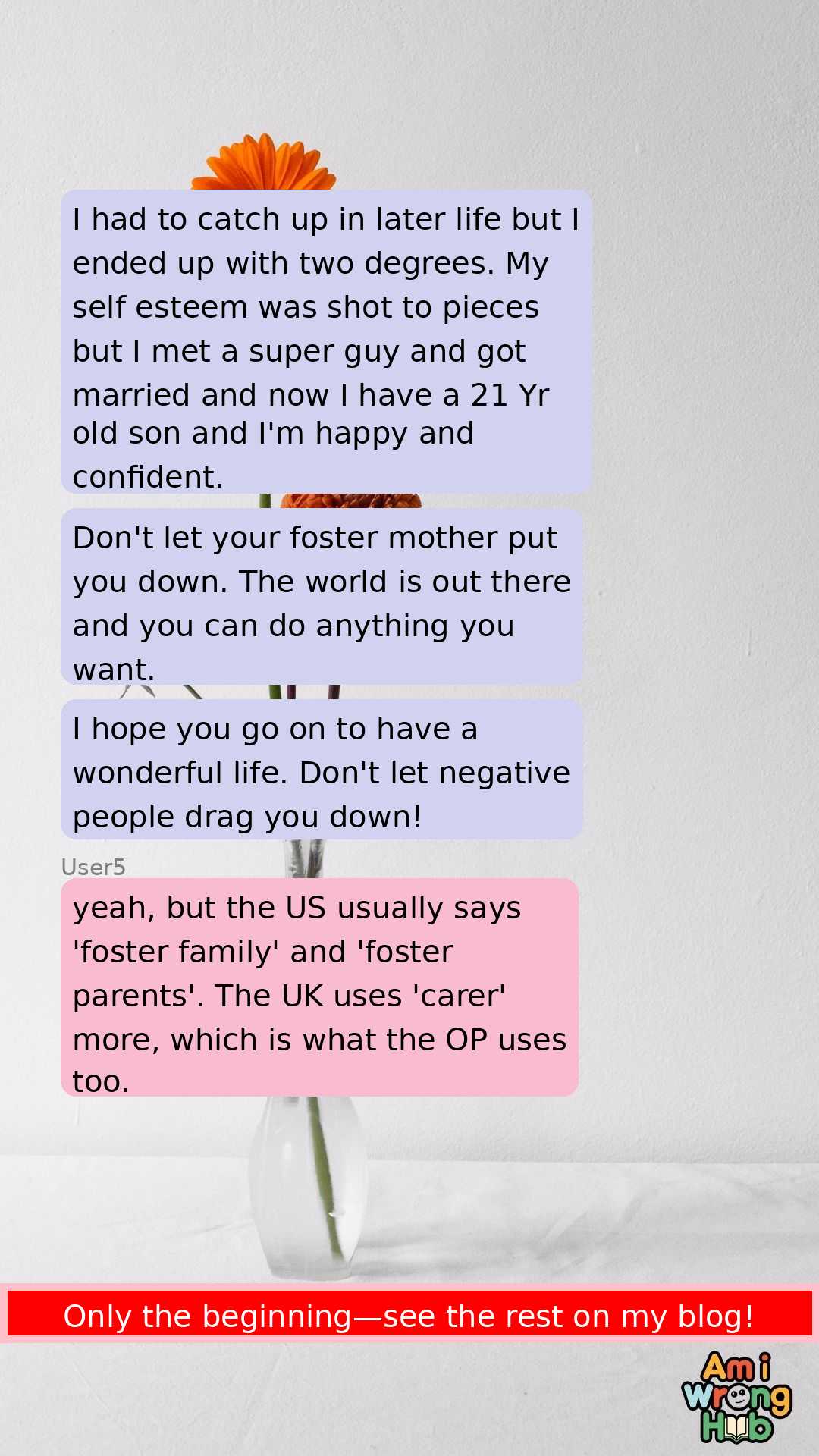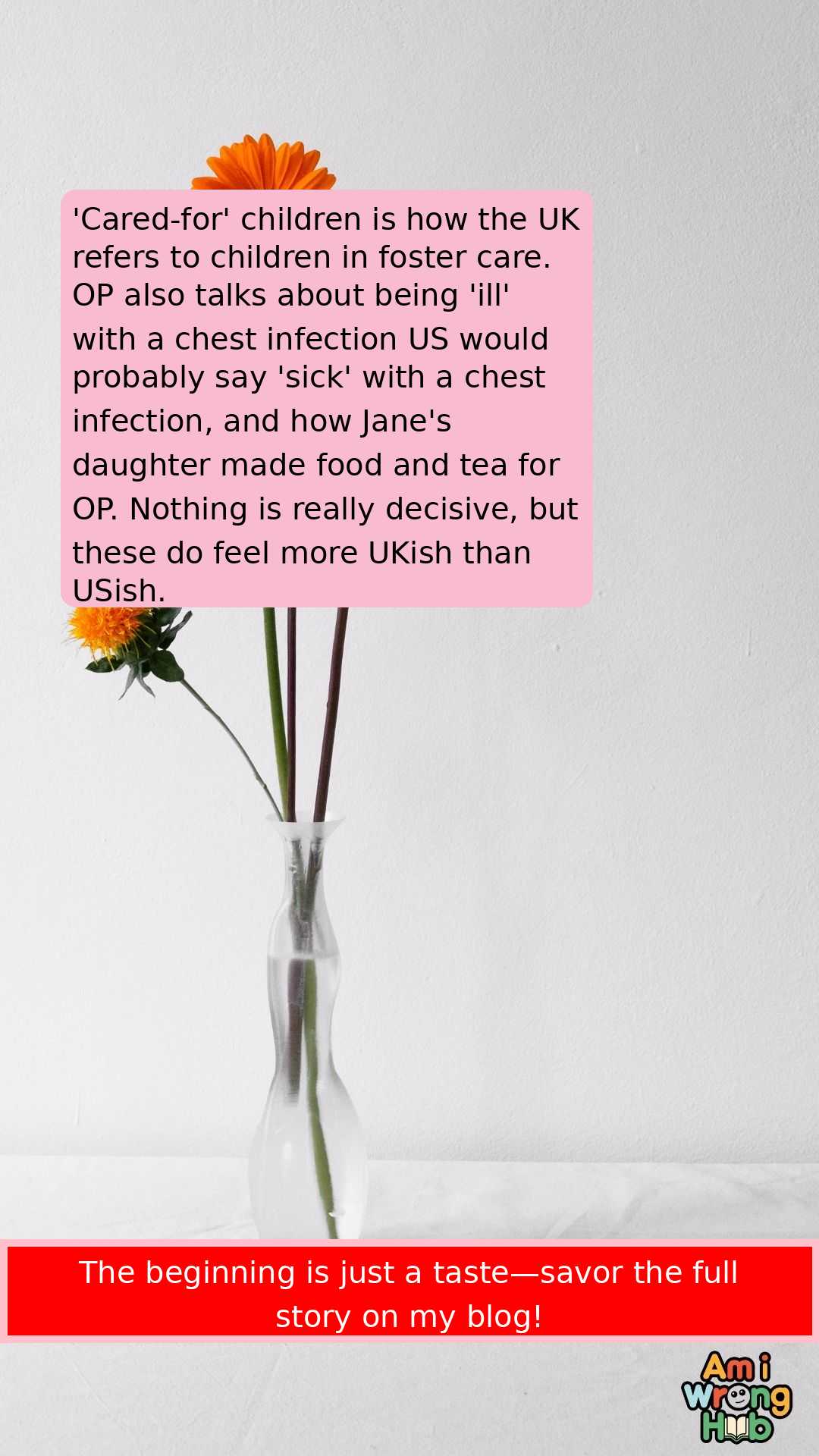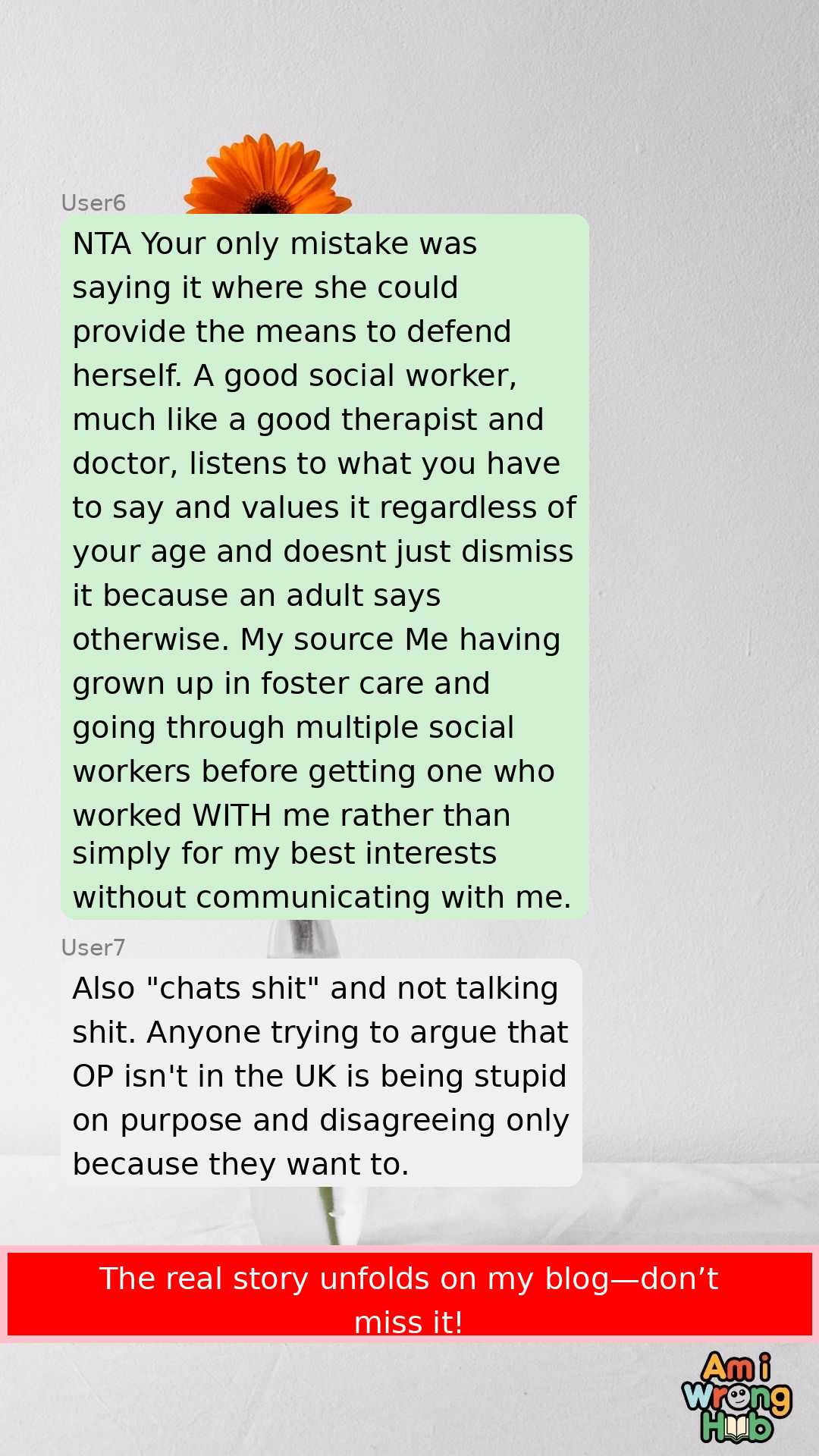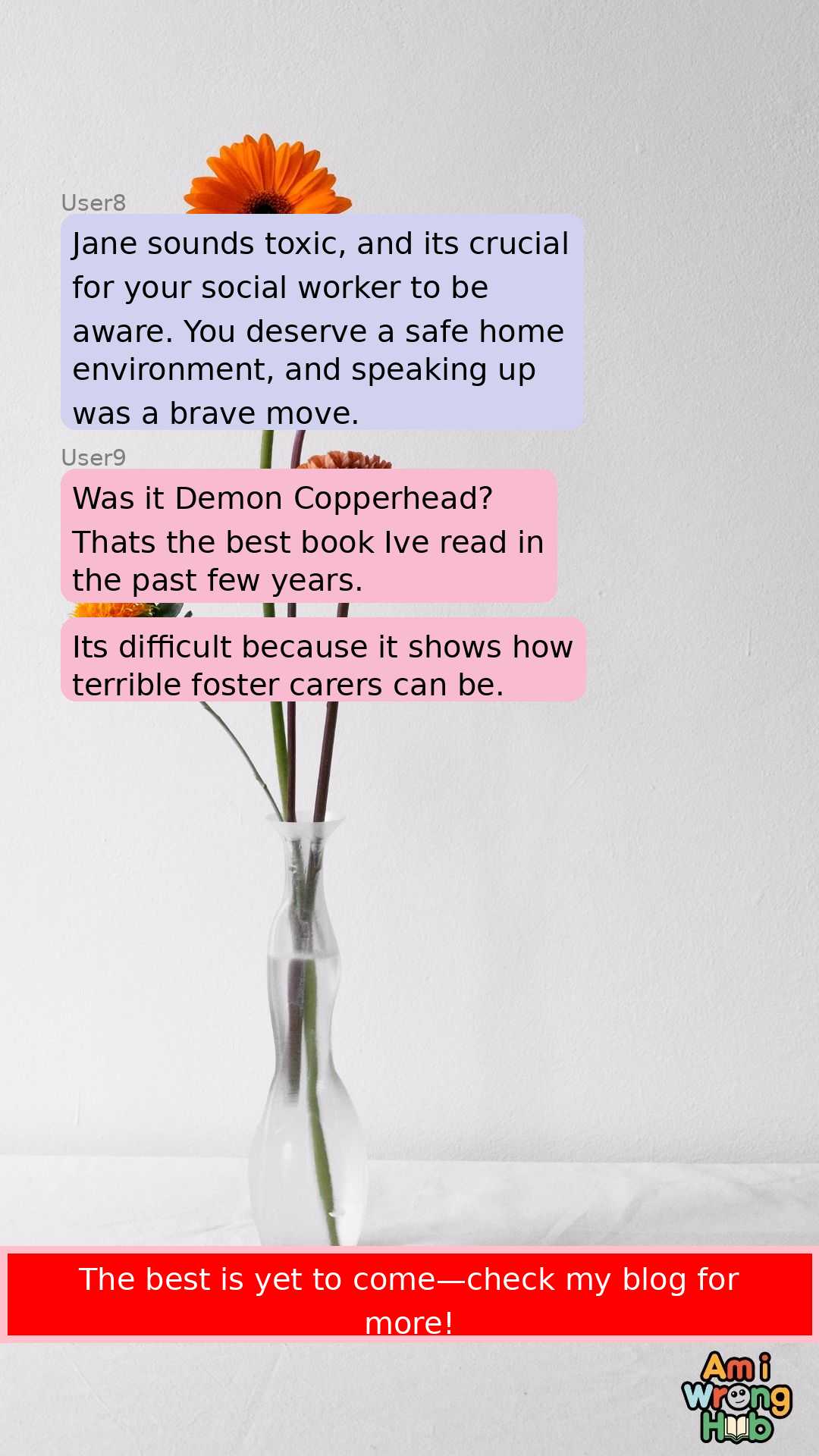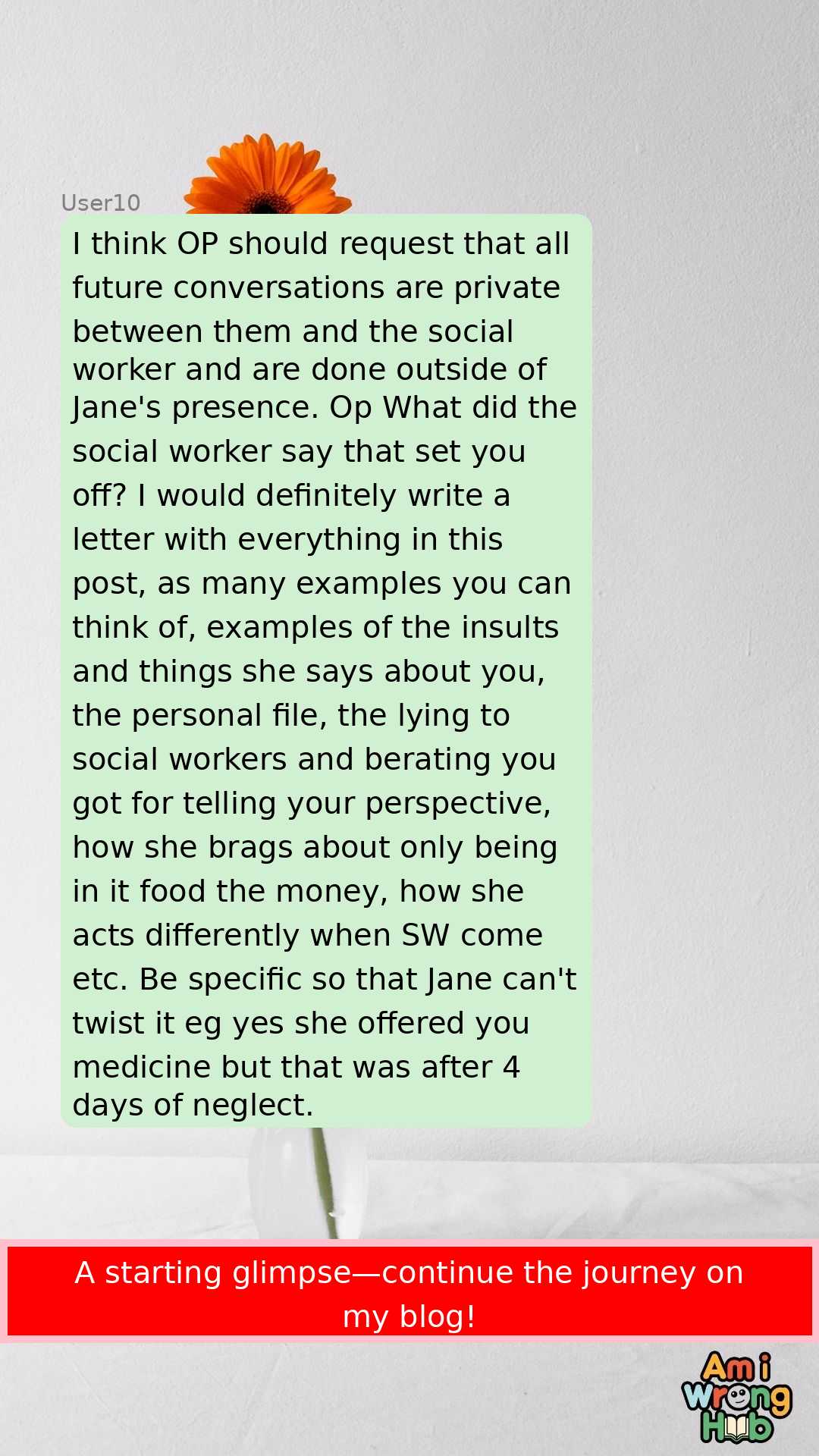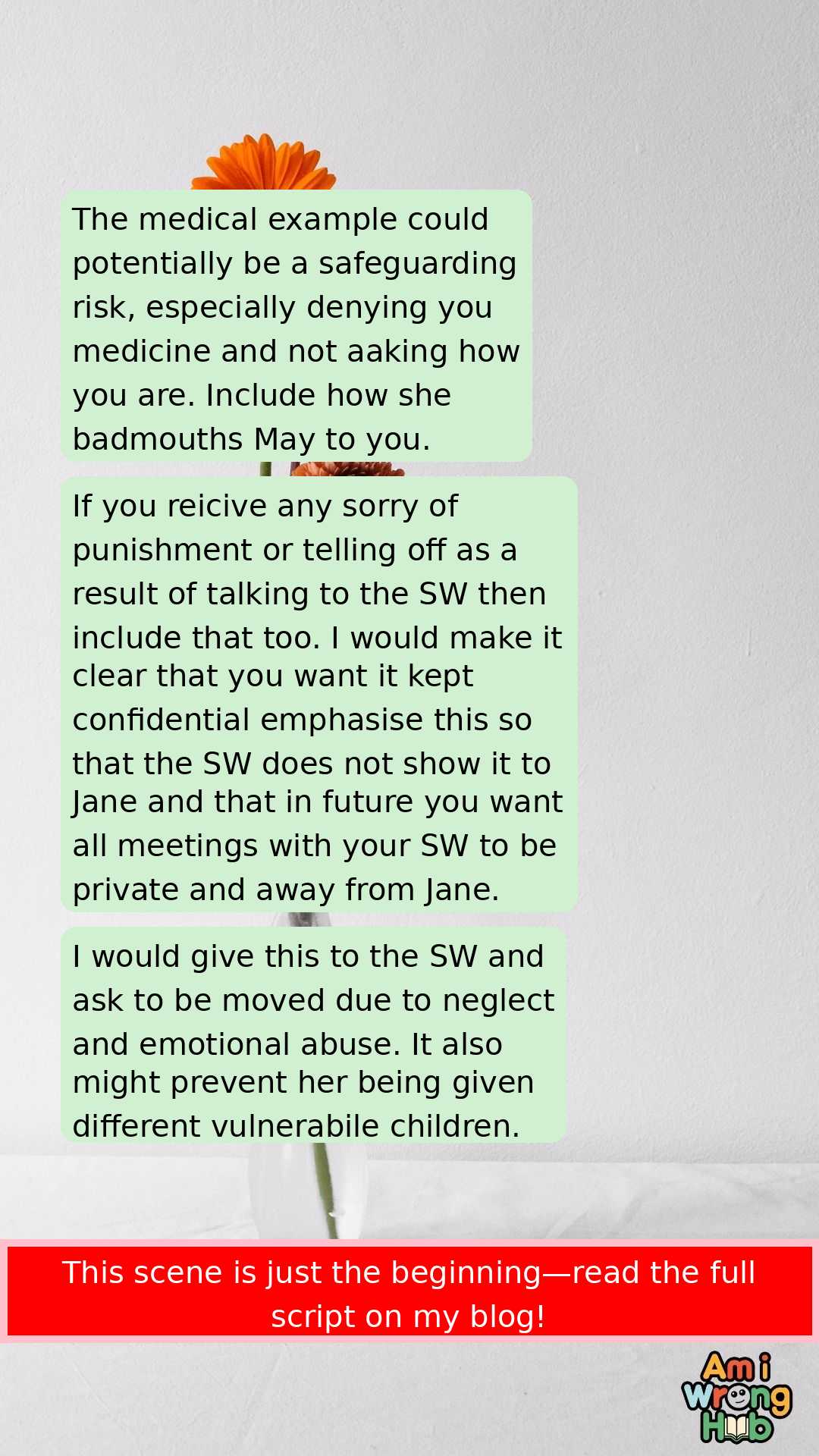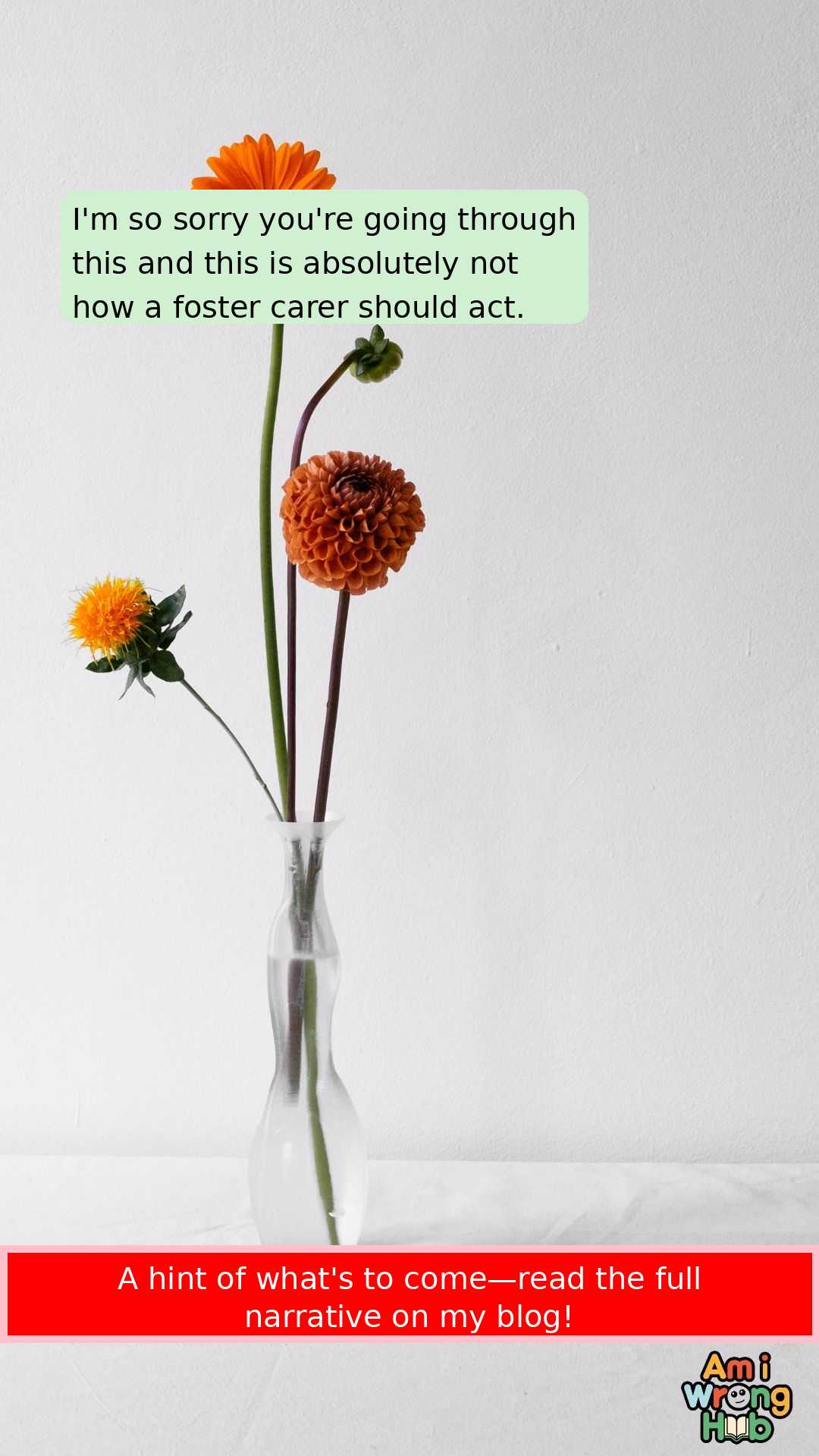AITA for calling out my foster carer in front of my social worker??
 Image credit: Pixabay (This is example image – Not the actual photo)
Image credit: Pixabay (This is example image – Not the actual photo)
Foster Care Drama: A Fight for Recognition
In a gripping tale of teenage resilience, a 17-year-old girl navigates the complexities of her foster home, where her carer, Jane, seems more interested in appearances than genuine care. After discovering that Jane has been badmouthing her to a long-term resident, May, the protagonist confronts the harsh realities of neglect and manipulation. This story resonates with anyone who has felt unheard or undervalued, especially in a system meant to provide support and safety. Can she stand up for herself and find the validation she deserves?
Family Drama in a Foster Home
A 17-year-old girl, who we’ll refer to as the narrator, has been living in her current foster home for just over a year. The dynamics within the home have led to significant family drama and conflict resolution challenges. Here’s a summary of the situation:
- Initial Impressions:
- Upon arrival, the narrator felt uneasy about her foster carer, Jane.
- Another resident, May, has lived in the home for 5-6 years and became friends with the narrator.
- Inappropriate Behavior:
- Jane showed May the narrator’s personal file and solicited her opinion.
- Since then, Jane has been speaking negatively about the narrator, labeling her as rude and disrespectful.
- Social Worker Involvement:
- The narrator’s social worker visited to assist with a housing application, as the narrator would not be able to stay after turning 18.
- During the meeting, the narrator expressed her frustrations about Jane’s lack of care, especially when she was ill.
- Illness and Neglect:
- The narrator suffered from a chest infection, during which Jane did not check on her.
- Only Jane’s daughter provided care, making food and tea for the narrator.
- Confrontation:
- During the meeting, the narrator confronted Jane about her neglect and the negative comments made about her.
- Jane became defensive and attempted to prove her care by bringing cough medicine.
- Birthday Disparities:
- The narrator highlighted that Jane did not acknowledge her birthday, unlike May’s celebration.
- Jane’s offer to take the narrator out for her birthday after the fact was perceived as insincere.
- Aftermath:
- Following the social worker’s visit, the narrator overheard Jane discussing their conversation, reinforcing her belief that Jane is more concerned with appearances than genuine care.
This situation illustrates the complexities of family drama within a foster care setting, highlighting the need for effective conflict resolution and genuine support from caregivers. The narrator’s experiences raise important questions about the responsibilities of foster carers and the emotional well-being of the children in their care.
This is Original story from Reddit
 Image credit: Pixabay (This is example image – Not the actual photo)
Image credit: Pixabay (This is example image – Not the actual photo)
My Experience in Foster Care
I, a 17-year-old female, have lived in my current foster home for a little over a year. I immediately got bad vibes from the foster carer on the first day. I don’t know, she just gave off energy, though that could have just been me being judgmental.
There is another girl who has been living in the same foster home for about 5 to 6 years before me. She is also 17, and for the sake of the story, I’ll call her May. We became friends, and she told me before I came that Jane, the foster carer, had shown her my personal file and asked for her opinion about me.
Since then, Jane has been chatting the most negative things about me to May. She tells me everything. Jane calls me rude, says I’m a bad influence, that I’m disrespectful, lazy, and have no manners, and apparently acts like this is my house.
Jane likes to rave and brag about how good of a foster carer she is and how long she’s been in the company. She does a lot of things to make herself look good in front of the social workers. About a week ago, my social worker came over to help me with a housing application since I wasn’t allowed to stay after 18 because Jane wouldn’t get money to take care of me.
During the meeting, my social worker said something that completely set me off. I had to confront Jane, saying that she’s a useless foster carer and that she doesn’t do anything and that she doesn’t care. A week before the meeting, I was really ill with a chest infection, and not once did Jane ask if I was okay.
Her daughter made me food and tea for the entire week while Jane said literally nothing to me. After about four days, Jane asked if I wanted cough medicine, and I said no. She never asked how I was doing.
I brought this up during the meeting and told my social worker how Jane never asked how I was doing when I was ill. Jane immediately got defensive and went into the other room. She got the medicine just to prove a point that she had bought medicine for me.
I also brought up how she actively talks negatively about me in the house. I never said where I got the source from; I just said I could hear from upstairs. She called me a liar and swore to God that she would never do that.
I also made a point that on my birthday, she didn’t say happy birthday to me until later on in the day. She didn’t get me a card, a gift, or a cake. I also said that when it was May’s birthday, everyone went out to Nandos while I didn’t get anything.
No one asked if I wanted to go out for my birthday, to which Jane responded, “Oh, do you want to go out this weekend?” I said no because it defeated the whole purpose, and it also proved that she was trying to put on a show in front of the social workers.
After my social worker left, we had a conversation and sorted things out. As I was going back to my room, I heard her on the phone to my social worker telling her everything that we had just spoken about, further proving my point that she’s only in it to make herself look good.
View the Original Reddit Post Here
Summary of Reddit Comments
The top Reddit comments indicate a strong consensus that the original poster (OP) is not at fault (NTA) for speaking up about their foster care situation. Many users emphasize the importance of informing the caseworker about the toxic environment created by Jane, the foster mother, and encourage OP to focus on their future and well-being. The comments reflect a shared understanding of the challenges faced by foster children and the necessity of advocating for oneself in such circumstances.
Overall Verdict: NTA
Expert Advice for Resolving the Conflict
Conflict in foster care settings can be particularly challenging due to the emotional stakes involved. Here are some practical steps for both the narrator and Jane to help resolve the ongoing issues and foster a healthier environment:
For the Narrator
- Document Everything: Keep a detailed record of interactions with Jane, including instances of neglect or negative comments. This documentation can be useful for discussions with your social worker.
- Communicate Openly: Consider having a calm and honest conversation with Jane about your feelings. Use “I” statements to express how her actions have affected you, such as “I felt neglected when I was sick and no one checked on me.”
- Involve Your Social Worker: Share your concerns with your social worker. They can provide support and may facilitate a meeting to address the issues with Jane directly.
- Focus on Self-Care: Prioritize your well-being by engaging in activities that bring you joy and comfort. Surround yourself with supportive friends, like May, who can provide emotional support.
- Explore Other Options: If the situation does not improve, discuss alternative living arrangements with your social worker. Your safety and emotional health are paramount.
For Jane
- Reflect on Feedback: Take time to consider the narrator’s feedback seriously. Acknowledge any shortcomings in your caregiving and be open to making changes.
- Improve Communication: Establish a more open line of communication with the narrator. Regular check-ins can help build trust and show that you care about her well-being.
- Seek Professional Guidance: Consider attending training or workshops on foster care best practices. This can help you understand the emotional needs of foster children better.
- Apologize and Acknowledge Mistakes: If appropriate, offer a sincere apology to the narrator for any neglect or hurtful comments. Acknowledging mistakes can go a long way in rebuilding trust.
- Focus on Building Relationships: Make an effort to celebrate important events, like birthdays, to show that you value the narrator as part of the family. Small gestures can significantly impact emotional well-being.
By taking these steps, both the narrator and Jane can work towards a more positive and supportive environment. Remember, fostering healthy relationships takes time and effort, but it is essential for everyone involved.
Join the Discussion
 Image credit: Pixabay (This is example image – Not the actual photo)
Image credit: Pixabay (This is example image – Not the actual photo)
What do you think? Would you have handled this differently?
Share your thoughts below! Vote: Do you agree with Reddit’s verdict?
